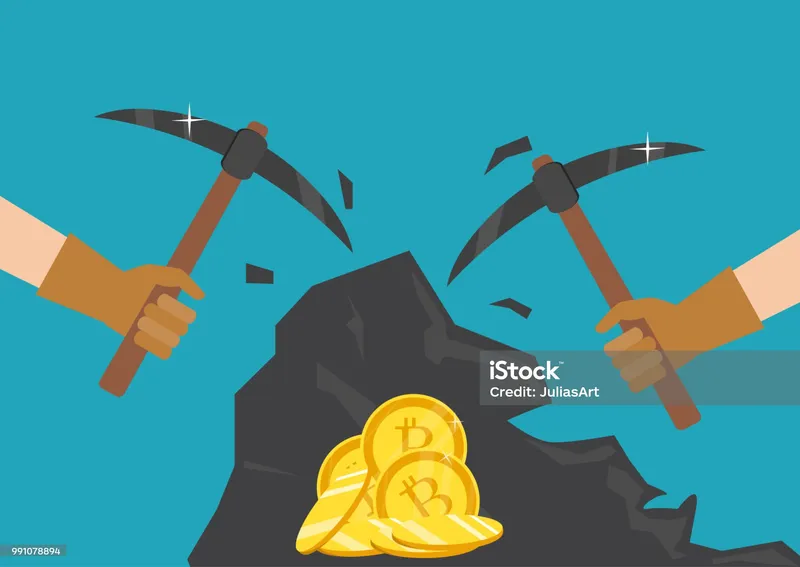Safeguarding Your Cryptocurrency Assets: A Comprehensive Guide

Cryptocurrency has emerged as a revolutionary asset class, attracting investors and enthusiasts worldwide. However, as the popularity of cryptocurrencies has grown, so too have the threats to their security. In this comprehensive guide, we will explore the various aspects of securing your cryptocurrency assets, ensuring that your digital wealth remains safe and protected.
Contents
- I. Understanding Cryptocurrency Security
- II. Securing Your Cryptocurrency Wallet
- III. Secure Practices for Cryptocurrency Exchanges
- IV. Protecting Your Private Keys
- V. Recognizing and Avoiding Scams
- VI. Regulatory Compliance and Taxes
- VII. Inheritance Planning
- VIII. Staying Informed
- IX. Frequently Asked Questions
- X. Conclusion
I. Understanding Cryptocurrency Security
What Makes Cryptocurrency Vulnerable?
- Digital Nature: Cryptocurrencies exist solely in digital form, making them susceptible to hacking and cyberattacks.
- Irreversible Transactions: Once a cryptocurrency transaction is confirmed, it cannot be reversed. This feature can be exploited by malicious actors.
- Lack of Regulation: The decentralized and pseudonymous nature of cryptocurrencies means that there is no centralized authority to turn to in case of fraud or theft.
Common Security Threats
1. Phishing Attacks
Malicious actors create fake websites or emails to trick users into revealing their private keys or login credentials.
2. Hacking and Malware
Hackers use various techniques to gain unauthorized access to wallets and exchanges. Malware, such as keyloggers and ransomware, can compromise the security of your digital assets.
3. Ponzi Schemes and Scams
Cryptocurrency scams promise high returns and use investors’ funds to pay earlier investors, creating a Ponzi-like scheme.
4. Social Engineering
Attackers manipulate individuals into revealing sensitive information or performing actions that compromise security.
II. Securing Your Cryptocurrency Wallet
Types of Cryptocurrency Wallets
1. Hot Wallets
Hot wallets are connected to the internet and are convenient for frequent transactions. They include web wallets, mobile wallets, and desktop wallets.
2. Cold Wallets
Cold wallets, also known as hardware wallets or paper wallets, are offline and offer enhanced security. They are ideal for long-term storage.
Best Practices for Wallet Security
1. Use Hardware Wallets
Consider investing in a hardware wallet for secure, offline storage of your cryptocurrency holdings.
2. Enable Two-Factor Authentication (2FA)
Enable 2FA wherever possible to add an extra layer of security to your accounts.
3. Regularly Update Software
Keep your wallet software and operating systems up to date to patch security vulnerabilities.
4. Backup Your Wallet
Create backups of your wallet’s private keys and store them in a safe place.
III. Secure Practices for Cryptocurrency Exchanges
Choosing a Reputable Exchange
1. Research Exchange Platforms
Thoroughly research cryptocurrency exchanges, considering factors such as security features, user reviews, and regulatory compliance.
2. Enable Security Features
Most exchanges offer security features like 2FA and withdrawal whitelists. Utilize these to enhance your account security.
Safe Trading Practices
1. Start with Small Amounts
When trying a new exchange or trading strategy, start with a small amount to minimize risk.
2. Be Wary of Phishing
Always double-check the website’s URL and ensure it uses HTTPS.
IV. Protecting Your Private Keys
The Importance of Private Keys
Your private key is the most critical component of cryptocurrency ownership. Losing it means losing access to your assets.
1. Store Private Keys Securely
Never share your private keys, and store them offline in a safe, such as a hardware wallet or a secure physical location.
2. Consider Multisignature Wallets
Multisignature wallets require multiple private keys to authorize transactions, adding an extra layer of security.
V. Recognizing and Avoiding Scams
Red Flags
1. Unrealistic Promises
Be cautious of investment opportunities promising guaranteed high returns.
2. Unsolicited Messages
Avoid engaging with unsolicited messages, especially those asking for personal information or money.
Due Diligence
Research any investment opportunity thoroughly and consult trusted sources before committing funds.
VI. Regulatory Compliance and Taxes
Tax Obligations
Depending on your jurisdiction, you may have tax obligations related to cryptocurrency holdings and transactions.
1. Keep Records
Maintain detailed records of all your cryptocurrency transactions for tax reporting purposes.
2. Consult a Tax Professional
Seek advice from a tax professional who specializes in cryptocurrency taxation to ensure compliance.
VII. Inheritance Planning
Include Cryptocurrency in Your Estate
Consider including your cryptocurrency holdings in your estate planning to ensure your loved ones can access them in case of unforeseen circumstances.
Legal Assistance
Consult with legal experts who specialize in cryptocurrency and inheritance law to create a robust plan.
VIII. Staying Informed
Cryptocurrency Security Evolves
Stay informed about the latest security threats and best practices by following reputable sources and news outlets.
IX. Frequently Asked Questions
1. Can cryptocurrency transactions be traced?
Most cryptocurrencies operate on public blockchains, which means that transactions are transparent and can be traced. However, the identities of users are often pseudonymous.
2. Is it safe to store large amounts of cryptocurrency in a hot wallet?
It is generally not recommended to store large amounts of cryptocurrency in hot wallets due to the increased risk of hacking. Cold storage methods, such as hardware wallets, are safer for significant holdings.
3. Can I recover lost cryptocurrency?
If you lose access to your private keys or wallet, it is often impossible to recover lost cryptocurrency. Prevention and secure storage are paramount.
X. Conclusion
Securing your cryptocurrency assets is paramount in the digital age. By following best practices, staying informed, and exercising caution, you can minimize the risks associated with owning and trading cryptocurrencies. Remember that the cryptocurrency landscape is continually evolving, so remaining vigilant and adaptable is key to protecting your digital wealth.









